Star Awards 1996 is the 3rd edition of the annual Star Awards presented by the Television Corporation of Singapore to honour its artistes who work on Channel 8. A total of 21 awards were given out at the ceremony and saw the introduction of two new categories, namely "Top Rated Drama Serial" and "Top Rated Telemovie", while the categories "Most Popular Male Artiste" and "Most Popular Female Artiste" were discontinued.
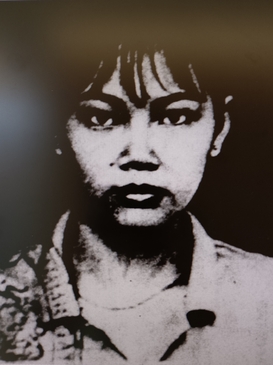
On 25 March 1999, a 18-year-old female Malaysian named Koh Mew Chin was found murdered in her rented flat at Singapore's Pasir Ris, where she lived with her boyfriend and several other Malaysians working in Singapore. A day after the killing, Koh's 19-year-old boyfriend Chan Choon Wai, also a Malaysian, was arrested and charged with murder.

Bernard Tan Thuan Tjer is a Singaporean actor and insurance dealer. He has starred in the television series Bond of Love (1994), Silk and Romance (1995), A Romance in Shanghai (1996), The Other Parent (1997) and Point of Entry (2010−2014).
Yen May Woen was a Singaporean hairdresser and drug trafficker. Yen was charged with drug trafficking in May 2002 after she was caught earlier that month for carrying 120 sachets, each containing 30.16g of heroin. Yen claimed that she did not know about the drugs, which were found in a bag she claimed she got from a friend. She was found guilty in March 2003 and sentenced to death upon conviction. Yen appealed to overturn her conviction and death sentence, but it was dismissed, and she was eventually hanged on 19 March 2004. For the next 19 years, Yen remained the last woman to be executed in Singapore before Saridewi Djamani was hanged on 28 July 2023 for drug trafficking.

On 22 January 1995, 47-year-old Lee Kok Yin, a taxi driver, was murdered by four Thai workers during an attempted robbery at Woodlands. After four months of investigation, two of the four suspects were arrested while the remaining two attackers remained at large.
On 23 May 1996, a 38-year-old Indonesian businessman named Benny Probocemdana Oen was mortally wounded by an assailant during a stabbing incident at Pacific Plaza before he died in hospital. The suspect, identified as 19-year-old Sim Eng Teck, was arrested more than a year later and charged with murder. Sim, who put up a defence of alcohol intoxication and also put forward claims that he only intend to stab the victim's arm during the knife attack, but Judicial Commissioner Amerjeet Singh found that Sim had intentionally inflicted the fatal injuries on Oen and described the killing as a "daringly cold-blooded" murder, and sentenced Sim to death in May 1998. Sim lost his appeal on 1 August 1998, and he had since been hanged.

On 2 March 2004, 47-year-old Esther Ang Imm Suan was murdered by her two Indonesian maids, Siti Aminah and Juminem, who also stole her jewellery and money from her house. It was alleged that Ang had been harsh in her scolding of the maids and expectations of her maids' performance and it caused them both to resort to violence and therefore committed the killing. Both Juminem and Siti were charged with murder, a crime which warrants the death penalty under Singaporean law.
On 25 March 1988, at Bukit Timah, 49-year-old lorry driver Yeu Lam Ching was robbed and murdered by two men. The two men, Abdul Aziz Abdul Rahman and Mazlan Maidun, were swiftly arrested and charged with murder. Mazlan, who directly stabbed the victim to death with a knife, was found guilty of murder and sentenced to death, while Abdul Aziz, who only robbed the victim and never took part in the stabbing, was found guilty of armed robbery and thus jailed for ten years and given 12 strokes of the cane. Mazlan was hanged on 21 January 1994 after losing his appeal.
On 3 June 1999, seven-year-old Andy Ang Wei Jie collapsed in his home and died due to multiple injuries on his body. Four years later, Ang's mother and her boyfriend were both arrested for murdering him, and it was revealed that the boyfriend, Chong Keng Chye, had ruthlessly and relentlessly abused the boy from October 1998 until 3 June 1999, when the boy died.

On 27 July 1984, 74-year-old Packiria Pillai Krishnasamy was murdered inside his flat at Tah Ching Road, Jurong. The police managed to arrest two suspects, Ramachandran Suppiah and Krishnan Varadan, who were both allegedly responsible for causing Packiria's death during a robbery bid. In May 1987, Ramachandran and Krishnan were both sentenced to hang for murdering Packiria. Although the duo lost their first appeal against the trial verdict, Ramachandran was acquitted after his second appeal, due to insufficient evidence proving that Ramachandran had participated in the crime, and Krishnan however, remained on death row after failing to challenge his conviction a second time. Krishnan was hanged on 15 April 1994 after spending seven years on death row, and he was reportedly the longest-serving death row prisoner in Singapore at the time of his execution.
On 16 October 2008, during a heated argument inside her car, 47-year-old Choo Xue Ying, alias Jennifer Choo, was assaulted to death by a business partner Rosli bin Yassin, and abandoned it at Bukit Batok Nature Park, where Choo's skeletal remains were discovered four days after her death. Rosli, who was later found to have committed cheating following the murder itself, was arrested and charged with killing Choo, and his girlfriend was also charged with abetting him to commit cheating. Rosli's murder charge was subsequently reduced to manslaughter, and after pleading guilty to the reduced charge and several other unrelated charges for cheating, Rosli was sentenced to 12 years of preventive detention on account of his long criminal record, and subsequently, through the prosecution's appeal, Rosli's sentence of preventive detention was raised to the maximum of 20 years for the same reason, as well as due to his high risk of re-offending and his original sentence was manifestly inadequate.
On 22 September 2005, 37-year-old film-maker Ho Kien Leong, alias Jayson Ho, was found dead inside his flat at Indus Road, Bukit Merah, and he was certified to be stabbed to death around nine days before his highly decomposed corpse was found. Ho's killer, Lim Ah Liang, was arrested in Johor, Malaysia, where he was hiding after he killed Ho by stabbing him 13 times during an argument, and Lim was extradited back to Singapore to be investigated for killing Ho. Originally charged with murder, Lim, who suffered from depression at the time of the murder, was found guilty of manslaughter and sentenced to life imprisonment on 17 January 2007. Lim later lost his appeal for a lower jail term and is currently in prison serving his life sentence since 2005.
On the midnight of 4 February 2002, at their rented flat in Singapore’s Rangoon Road, 34-year-old Jin Yugang, a cleaner from China, had a drinking session with his 32-year-old roommate Wang Hong and other friends, but an argument broke out between the both of them, and it resulted in Jin using a knife to stab Wang multiple times, resulting in Wang's death.
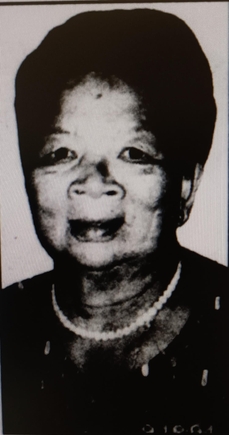
On 19 October 2005, 75-year-old Wee Keng Wah was found dead at the foot of her HDB block in Chai Chee, Singapore. On that same day, her 26-year-old Indonesian maid Barokah was arrested and charged with murder. It was later found through investigations that Barokah murdered Wee after the latter caught her sneaking out to meet her lover and Wee threatened to sack her, and Barokah thus had a fight with Wee before pushing her out of the flat window and leading to Wee's fall to death.
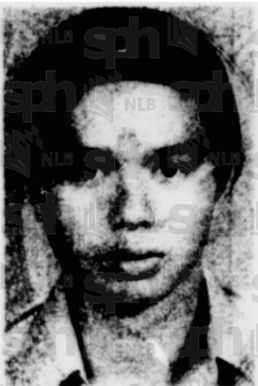
On 27 February 1991, inside his home at Geylang, 32-year-old businessman Ng Keng Hua was stabbed twice by two attackers during a robbery bid, and he died as a result of the stabbing while warded at a hospital. One of the murderers, Tan Bee Hock, was found guilty of murdering Ng and sentenced to death in 1993. The other man, Toh Laie, however, remains on the run since then, and he was never found.
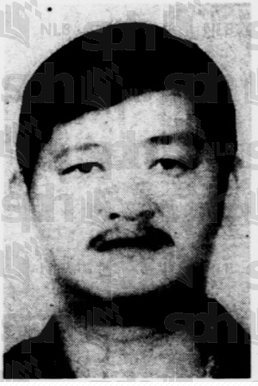
On 12 March 1997, a loan shark named Tan Tiong Huat was shot to death at a carpark in Singapore's Beach Road. The suspected gunman fled Singapore for Thailand, where he was eventually caught and extradited back to Singapore for trial seven years later. The gunman, Lim Thian Lai, was charged with murdering Tan before he was put on trial for an amended charge of illegally discharging a firearm to cause death. Although Lim put up a defense that he was innocent and it was another person who killed Tan, the trial court found him guilty of shooting Tan to death under the Arms Offences Act and sentenced him to the mandatory death penalty for the crime.
On 22 January 1995, 63-year-old taxi driver Tay Chin Wah fired a revolver at two men, Lee Yang Ping and Soh Keng Ho, who both confronted Tay's girlfriend over a debt she owed to Lee, who was a moneylender. Tay was said to have committed the shooting out of anger over his girlfriend's predicament, and the shooting left Lee injured, and he survived with timely medical intervention. Tay was arrested in Malaysia and brought back for trial five years later, and in February 2001, he was sentenced to death under the Arms Offences Act on charges of illegally discharging his firearm with intent to cause harm. Tay's appeal was dismissed, and he was hanged on 26 October 2001.

On 10 August 2001, at Queenstown Remand Prison in Singapore, 19-year-old Shankar Suppiahmaniam, a detainee who was charged with raping two young girls, was found dead inside his remand cell. Shankar, who was pronounced dead in a hospital, was found to have been killed by one of his cellmates, who was also charged with rape in a separate case. The inmate, Kanesan Ratnam, confessed to the police that he strangled Shankar due to their arguments over hygiene issues inside their shared cell and his wish to die in the gallows after some failed suicide attempts. Kanesan was found guilty of murdering Shankar and sentenced to death after a three-day trial in February 2002. Kanesan did not appeal, and he was hanged on 10 January 2003.
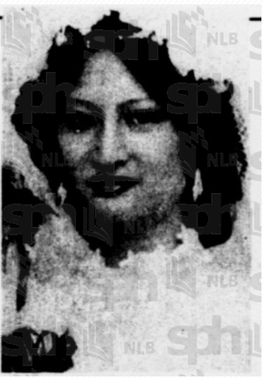
On 23 September 1980, inside a terrace house in Opera Estate, Singapore, 23-year-old babysitter Chia Chun Fong was found dead with a knife stuck to her mouth. The cause of death, which was previously unknown in Singapore's medical history, was due to the knife cutting through a vertebrae artery while being pushed into the mouth, and it consequently led to Chia dying from excessive blood loss. Chia, who was entrusted to care for the infant son of her neighbour, was later found to have been murdered by her husband's distant relative Tan Cheow Bock, who fled from Singapore after the killing. Tan remained on the run for seven years before he was caught for vehicle theft in Malaysia, and extradited back to Singapore for trial. Close to ten years after the murder of Chia, Tan was found guilty of murdering Chia and sentenced to death by the High Court on 31 August 1990.
On 28 April 1985, at his workplace in Tanjong Rhu, 38-year-old ice factory worker Samynathan Pawathai, alias Chelia Dorai, was attacked by eight men who sought revenge against one of Samynathan's friends, who hurt one of the attackers in an earlier fight, and Samynathan died as a result of grievous injuries sustained from the attack. Out of the eight murderers, only five were caught and charged with murder, while the remaining three perpetrators went on the run till today. Out of the five, two of the attackers - Abdul Ghaffur Parith Mohamed Kassim and S. Ganesan Shanmugam- were each jailed six years for manslaughter, while the other three - Kumar Nadison, Jabar Kadermastan and Chandran Gangatharan - were found guilty of murdering Samynathan and sentenced to death. The trio were hanged on 28 April 1995 after all their appeals were rejected.












